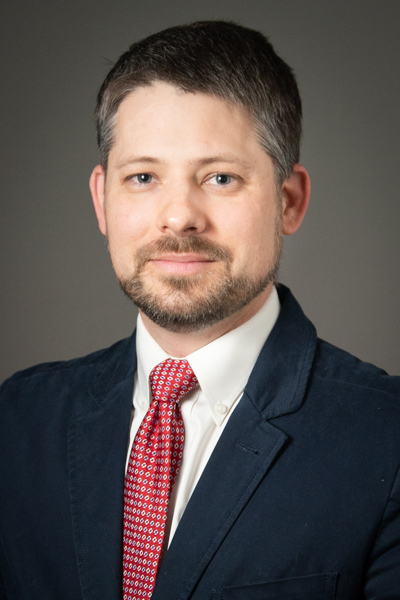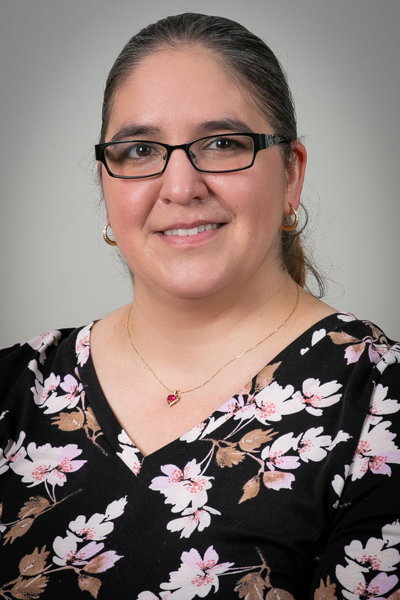Department of Comparative Medicine
The Department of Comparative Medicine is the academic and research component of laboratory animal resources at the University of Tennessee Health Science Center.
Residency Program
The laboratory animal medicine residency program focuses on the following:
- professional management of animal resources
- medical and surgical management of laboratory animals to prevent and minimize adverse effects of spontaneous diseases on research results
- selection of animal subjects and experimental methods on research protocols
- independent and collaborative research
- federal, state and local laws and regulations involving the use of animals in research
- industry standard guidelines and performance-based outcomes
- Institutional Animal Care and Use Committee (IACUC) functions including protocol review
- biosafety and animal biosafety with emphasis in ABSL2 and ABSL3 husbandry, veterinary care, and operations
Approximately 70% of the trainee’s time is devoted to clinical residency training in laboratory animal science and medicine consisting primarily of participation in clinical rotations, facility management, and teaching/training programs (e.g. AALAS Technician Training). Courses are provided by the Department of Comparative Medicine include: Essentials of Animal Experimentation (CMED 711), and Biology and Pathophysiology of Lab Animals I and II (CMED 712 & 713). The trainee gains clinical experience through interaction with the faculty veterinarians, principal investigators, research staff and animal care technicians as problems are encountered and solved.
Trainees are involved in all aspects of the clinical care program including:
- animal disease prevention and surveillance
- environmental monitoring
- experimental surgery and postoperative care
- examination of animals and diagnosis of clinical problems
- performing diagnostic tests and evaluating the results
- selecting and carrying out therapeutic regimens in concert with the veterinary faculty and investigators
- conducting gross and histological necropsy examinations and preparing necropsy reports
- communicating with investigators and the technical staff regarding animal health problems
In addition, trainees routinely interact with the animal care staff, participate in staff meetings regarding the management of animal care resources, and assist with the review and periodic update of the standard operating procedures for the program of animal care. Another important aspect of the training program is the study of animal models for biomedical research; this information is conveyed via seminars and participation in the activities of the IACUC including the review of animal study protocols and providing veterinary consultation to investigators using animal models. In collaboration with the Regional Biocontainment Laboratory, trainees will receive basic and advance training in biosafety and animal biosafety that will prepare them for working in an ABSL3 facility.
This is a graduate level introductory course on the care and use of research animals. Topics include Federal Laws and Regulatory Policies, Animal Alternatives, Genetics and Nomenclature, Environmental Factors, IACUC-Protocol Preparation and Review, Laboratory Animal Diseases, Pain and Distress, Animal Models, Statistical Design, Principles of Surgery and Health Surveillance. This Course is taught in weekly 1-hour lectures and a 2-hour lab. This course meets for 18 weeks for 48 contact hours. During the laboratory exercise the students become familiar with basic husbandry and handling, restraint, drug administration, and other experimental techniques used in a research setting. Student evaluation includes 2 examinations (midterm and final), quizzes and grading on a non-survival surgery.
This course is taught every Fall Semester. New residents are enrolled in this course while returning residents assist in teaching the laboratories. Dr. David Hamilton is the course director. Others that participate in teaching are Dr. Jeff Steketee, IACUC Chair, Drs. Aycock and Hibl and second- and third-year residents in the program.
This is a graduate level course covering the biology, anatomy, husbandry and diseases in laboratory animals, with a focus on rodents and rabbits. Topics include Mouse and Rat Anatomy, Biology and Husbandry, Genetics, Creation of Transgenic Animals, Rodent Strains and Models, Mouse and Rat Viral Infections, Mouse and Rat Bacterial, Parasitic, Fungal, Mycoplasma and Miscellaneous Diseases, Rodent Pathology, Rabbit Diseases, Quality Control for Rodents, Rodent and Rabbit Experimental Techniques including Anesthesia and Surgery. This is a much more intense course in terms of breadth and depth of each of the topics that are presented.
This course is designed to discuss the range of material that will be covered on the ACLAM exam. This course meets weekly for 2 hours for 23 weeks – 46 contact hours. The course director is Dr. David Hamilton. Other instructors include Drs. Tyler Aycock and Brianne Hibl (UTHSC), Dr. Amy Funk (SJCRH) and Dr. Harshan Pisharath (SJCRH).
This is a graduate level course focusing on the Anatomy, Biology and Diseases of Non-Human Primates, Swine, Small Ruminants, Miscellaneous Rodents, Ferrets, Amphibians, Fish and Reptiles and Dogs and Cats.
This course meets for 2 hours weekly for 23 weeks – 46 contact hours. The course director is Dr. David Hamilton. Other instructors include Drs. Tyler Aycock and Brianne Hibl (UTHSC), Dr. Tiffani Rogers (SJCRH) and Dr. Amy Funk (SJCRH).
This is a conference lead by Dr. Heather Tillman, DVM, PhD, DACVP who is a full-time veterinary pathologist at St. Jude Children’s Research Hospital. The pathology rounds cover current cases as well as cases from the Armed Forces Institute of Pathology files. Theses rounds meet every other week for 40 weeks for 1-hour sessions- 20 contact hours. Students study the cases in advance and the cases are discussed in detail during the conference. Students are evaluated on their ability to determine the morphology and etiology of each histology or gross pathology slide as well as their discussion of the pathophysiology of each condition.
This course provides students with an introduction to descriptive statistics, probability and probability distributions, estimation, and one and two sample hypothesis testing, including paired and unpaired situations, for normally distributed and ordinal data. Students will also be introduced to one-way analysis of variance, including multisample inference, one-way ANOVA, fixed-effect and random effects models, and intraclass correlation coefficients. This course also includes a mandatory statistical computing laboratory that uses SAS for data analysis throughout the semester.
This course consists of a study of the ethical principles and related federal and state laws governing scientific research conducted in both public and private settings. Through a combination of lecture and case study discussion, students learn both the substance and application to scientific research of ethical principles and relevant laws.
Topics addressed include research with human subjects, research with animal subjects, the use of human biological materials, privacy and confidentiality of research and medical records, conflicts of interest, policies and procedures for addressing scientific misconduct, ownership of research, responsible reporting of research, and ethical training practices.
The theory and practical application of commonly used laboratory techniques in molecular biology are considered.
Faculty

David J. Hamilton, DVM, DACLAM
Program Director
Associate Professor
Clinical Veterinarian
dhamilt7@uthsc.edu

Amy Funk, DVM, DACLAM
Clinical Veterinarian
Animal Resource Center
St. Jude Children’s Research Hospital
amy.funk@stjude.org

Tiffani Rogers, DVM, DALCAM
Adjunct Assistant Professor, UTHSC
Clinical Veterinarian, Animal Resource Center
St. Jude Children’s Research Hospital
tiffani.rogers@stjude.org

Harshan Pisharath, DVM, PhD, DALCAM
Director, Animal Resource Center
St. Jude Children’s Research Hospital
harshan.pisharath@stjude.org

Heather Tillman, DVM, PhD, DACVP
Assistant Member
St. Jude Children’s Research Hospital
heather.tillman@stjude.org


